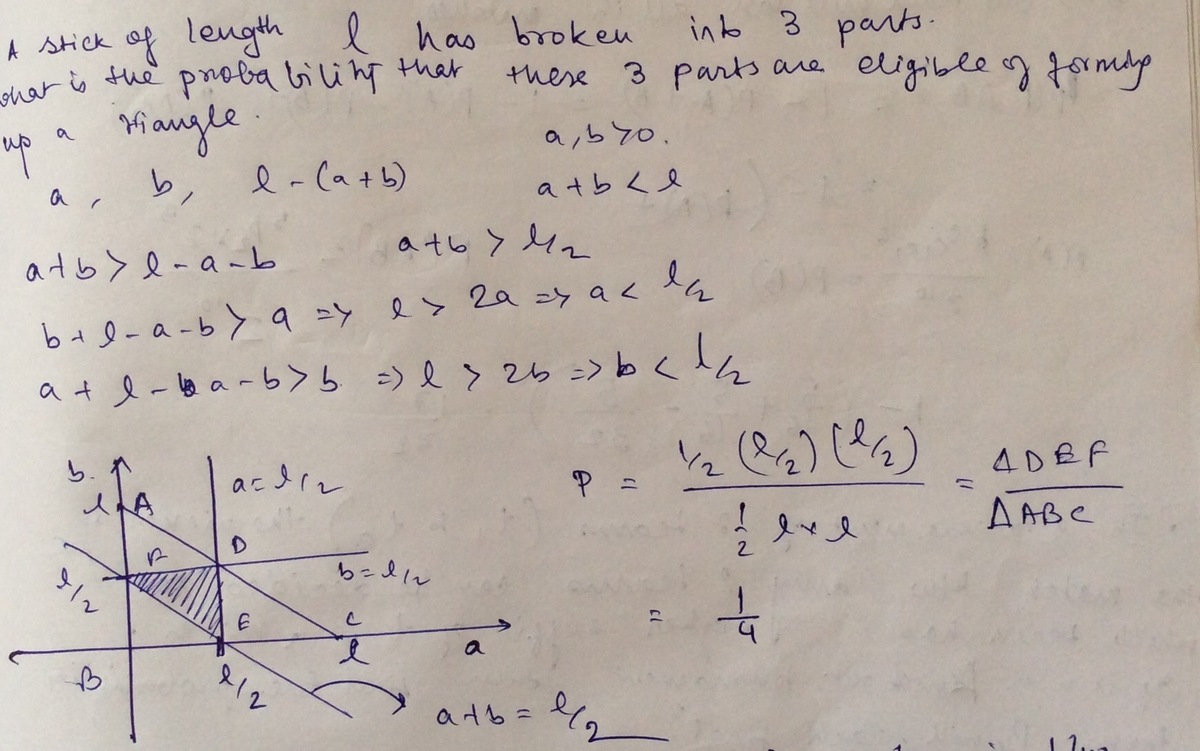Salvage A Broken Stick
A stick of length 1 has broken uniformly at random at 2 places simultaneously, resulting in 3 parts.
What is the probability that these 3 parts can form a triangle?
The answer is 0.25.
This section requires Javascript.
You are seeing this because something didn't load right. We suggest you, (a) try
refreshing the page, (b) enabling javascript if it is disabled on your browser and,
finally, (c)
loading the
non-javascript version of this page
. We're sorry about the hassle.
1 solution

Exactly same way :)
The problem does not state very clearly what the probability distribution is of the breakage. However, it is perfectly reasonable to assume that the stick is broken at points X and Y where X , Y are independent stochastic variables homogeneously distributed on [ 0 , L ] .
Then Dipanjan's solution is correct. Not only did I end up with the same graph as he did, I also verified it by simulation. Here is my simulation pseudo code:
1 2 3 4 5 6 7 8 9 10 11 12 13 |
|
I consistently find values near 25%.
Log in to reply
Thanks. I've updated the phrasing accordingly.
Ive got no idea :@
Shouldn't this be 100%? A single stick is broken into 3 different parts of random size. Under what circumstances will you not be able to form a triangle from these 3 parts together? I can't think of any.
Or have I not understood the question?
Log in to reply
For instance, if a stick of length 10 is broken into pieces of lengths 6, 3, and 1, there is no way you make a triangle out of it.
It's like having three sticks of varying lengths, you can't guarantee that the sum of two sides will be greater then the third side( i.e. third stick) , which is an essential condition for formation of a three sided closed figure.